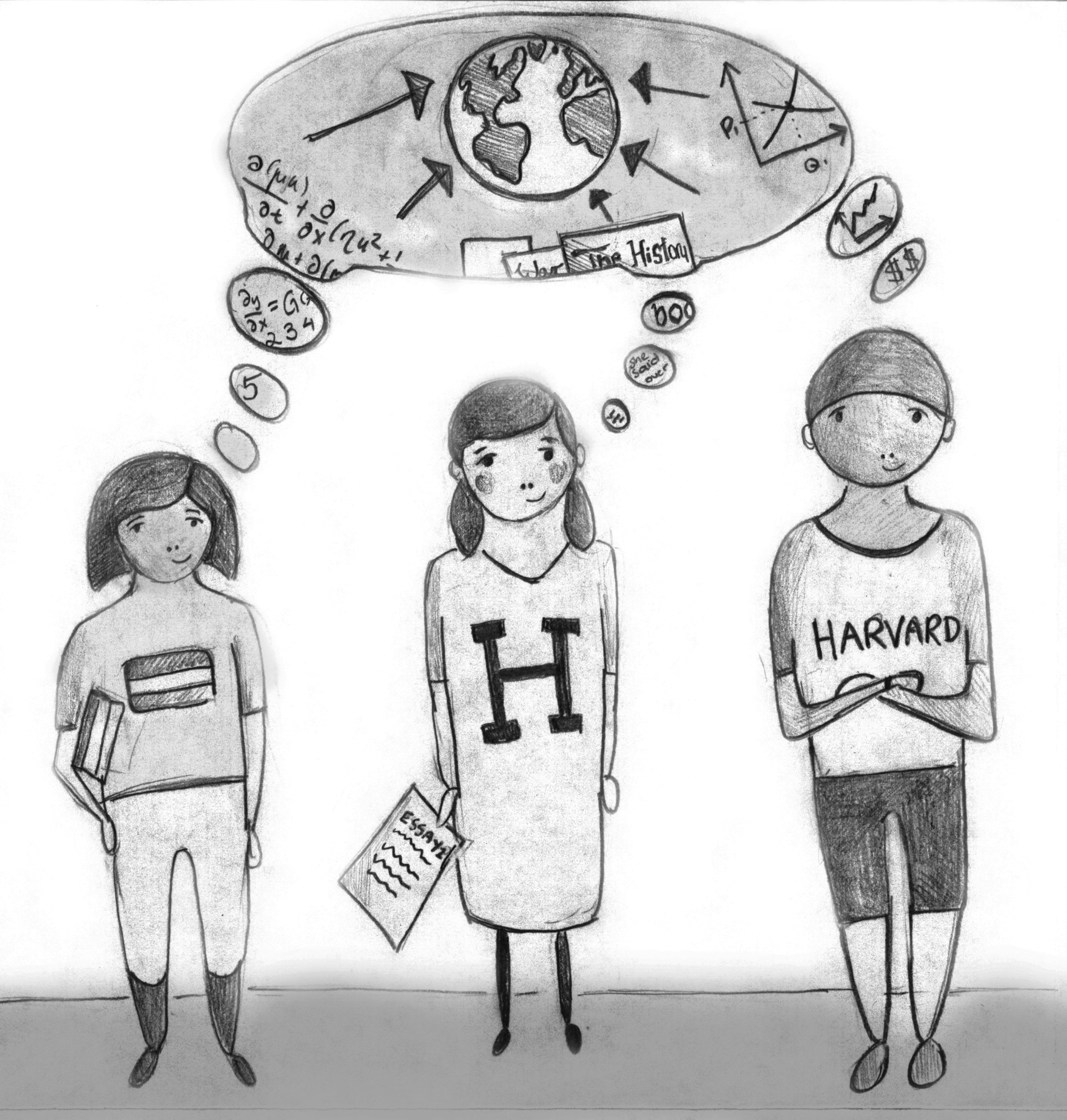
News
Summers Will Not Finish Semester of Teaching as Harvard Investigates Epstein Ties

News
Harvard College Students Report Favoring Divestment from Israel in HUA Survey

News
‘He Should Resign’: Harvard Undergrads Take Hard Line Against Summers Over Epstein Scandal

News
Harvard To Launch New Investigation Into Epstein’s Ties to Summers, Other University Affiliates

News
Harvard Students To Vote on Divestment From Israel in Inaugural HUA Election Survey
The Time of Choosing
Concentrations are created equal

When I walk into the Barker Center, the home of the humanities on our campus, I feel excited about the challenges and opportunities that await me. Whether a discussion about the merit of comic books as literature or a heated debate on the slave trade ensues, I find myself forced to think about my values, my opinions, and the construction of my world. Not surprisingly, I frequently leave the building with a pounding headache and a small smile on my face. The two go hand-in-hand: The days that the content makes my head hurt the most are also the days that I most appreciate what I study.
I hope that all of my fellow students also feel challenged by their courses but still find happiness in those moments when the information or question at hand may be too difficult to handle (at least temporarily). What I do not want and what I find limiting, however, is competing over which field of study is the hardest or most valuable.
Unfortunately, I have been taken all too often by our predisposition to declare our own or others’ interests the most difficult or worthwhile. As a prospective humanities concentrator, I become frustrated when I hear someone say, “Anybody can read books and talk in class.” I also struggle to understand the reason for the following retort a humanities’ concentrator might make: “How does your concentration challenge you to think about the people around you and your own values?” It’s bad enough that these tensions exist among students, but they are also made more difficult when they exist among professors. It is hard to believe that in a community committed to learning and the sharing of ideas, dismissing other forms of thinking, intentionally or not, helps anyone.
In coming up with this article, I could not help but think about the definition of a Renaissance Person. According to Merriam Webster Dictionary, a Renaissance Person is “one who is interested in and knows a lot about many things.” The goal of a liberal arts education, in my mind, is to make each of us a Renaissance Person of our own kind. Maybe some of us will think about how to solve human problems with machines, while others will discover how to provide needed medicines using governmental and economic structures. The beauty of Harvard is that each of us can do it in our own way.
“The History of American Democracy,” a class I am taking this semester, embodies the excitement and importance of recognizing how the disciplines interact to shape the world. Taught at the Business School by a professor with a Ph.D. in American History and an M.A. in Economics, the course requires us to look at a cross-section of the influences that have shaped our country. We have read economic theory, discussed political philosophy, looked at the course of past events, and read primary source historical documents. Intense debates develop about whether the answers to the questions we are examining lie in economic theory or in the influence of public opinion. Our professor frequently suggests, in response to our sometimes one mindedness, that American Democracy is an organism that rights itself with the help of many forces when it needs to.
As we move forward in a world that becomes more complex each day, we must utilize the different disciplines together like my professor does in order to fully understand and solve our world’s problems. If and when we take on something as big as poverty, for example, a life scientist will not be able to solve it on his or her own, nor will an engineer, a humanist, a political scientist, or an economist. The world’s varied and intertwined social and economic structures will require all of them to work in conjunction to do so.
When we look at smaller problems on our own campus, the same reality exists. Instead of debating the merits of different types of knowledge and questioning the thinking of other learners, let’s embrace these different viewpoints. Ironically, many of my friends and I agree that the people we learn the most from are our fellow students outside of the classroom. Furthermore, I have heard many people say that the variety of experiences, backgrounds, political beliefs, and personalities that exist among us is the core and the beauty of our Harvard community. I think we should include the variety of intellectual pursuits in that list.
The first step to accomplishing this acceptance would be for all of us to recognize that no one’s concentration is necessarily better, harder, or more valuable than anyone else’s and to speak positively about all of them. I believe that what we learn individually first and then share and learn collectively will allow for own growth and the greatest improvement of our community and the world. Let’s appreciate each other’s respective strengths and not work in isolation. Let’s work, in the words of Harvard President Drew Faust, toward “One Harvard.”
James Piltch ‘17 lives in Leverett House. His column appears on alternate Thursdays.
Want to keep up with breaking news? Subscribe to our email newsletter.
